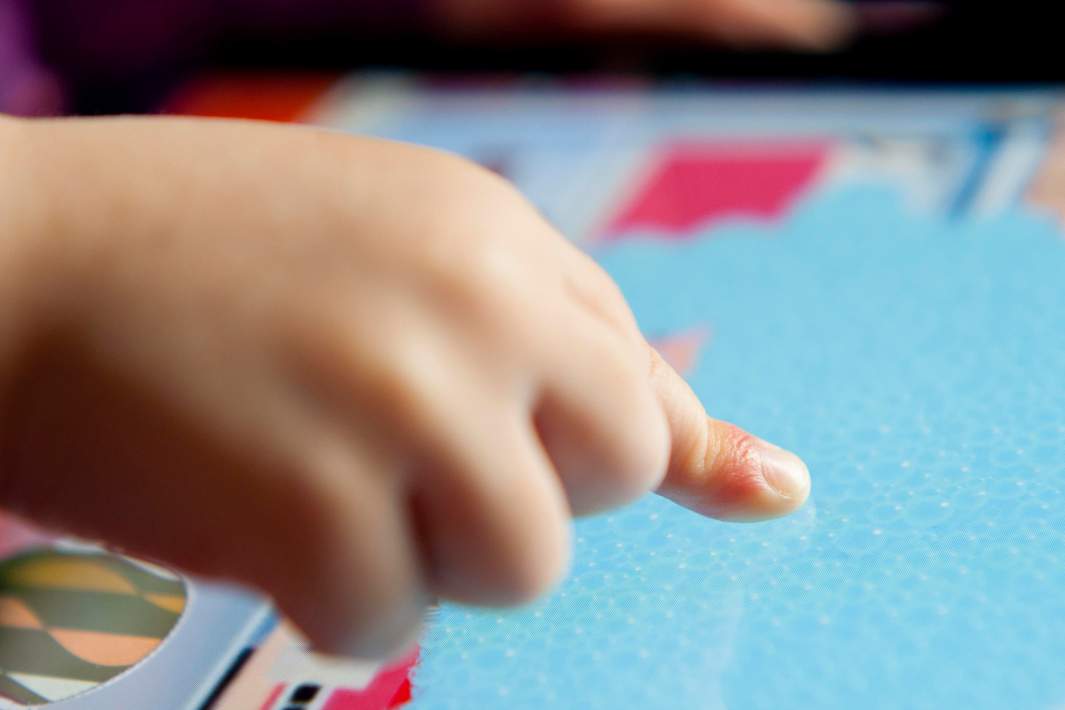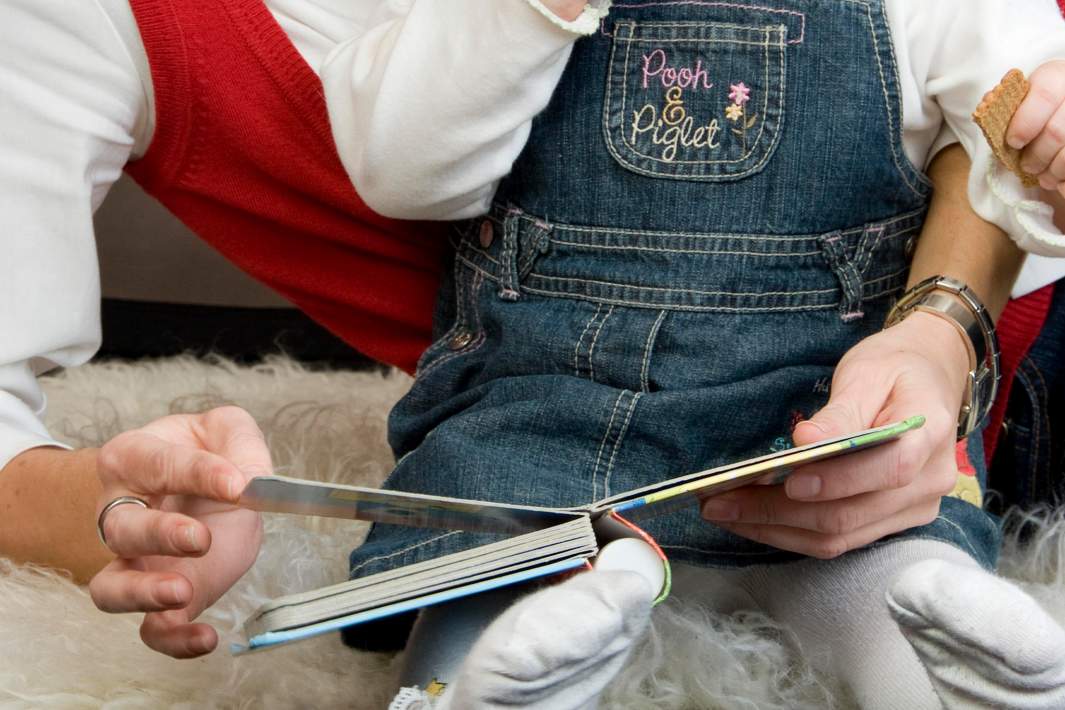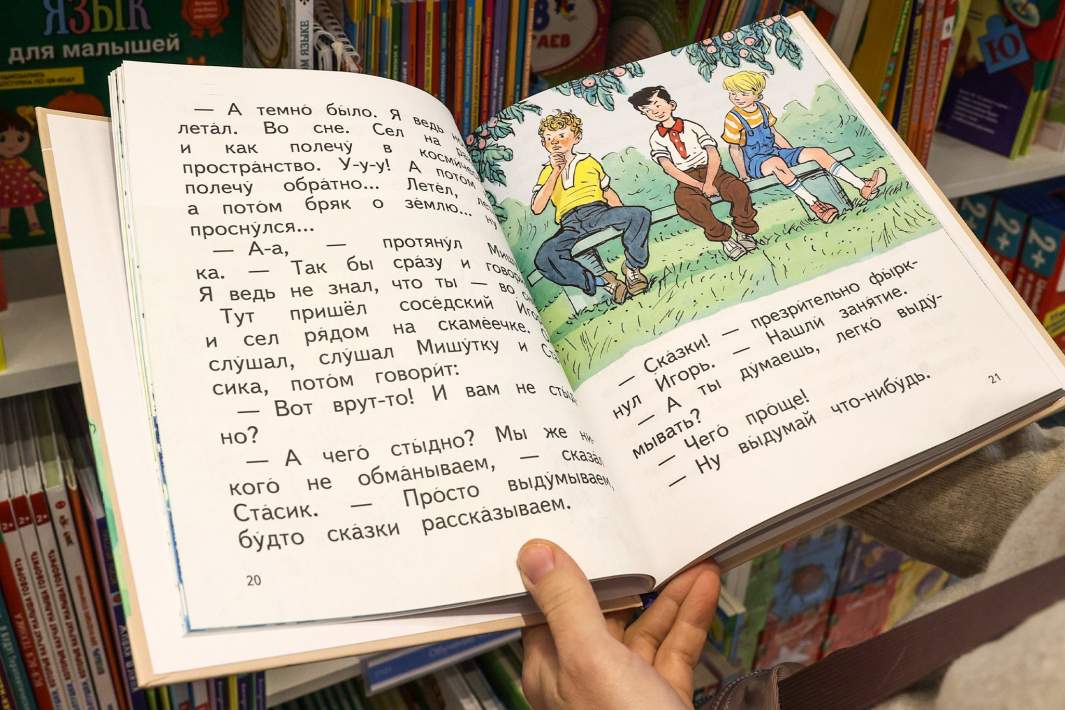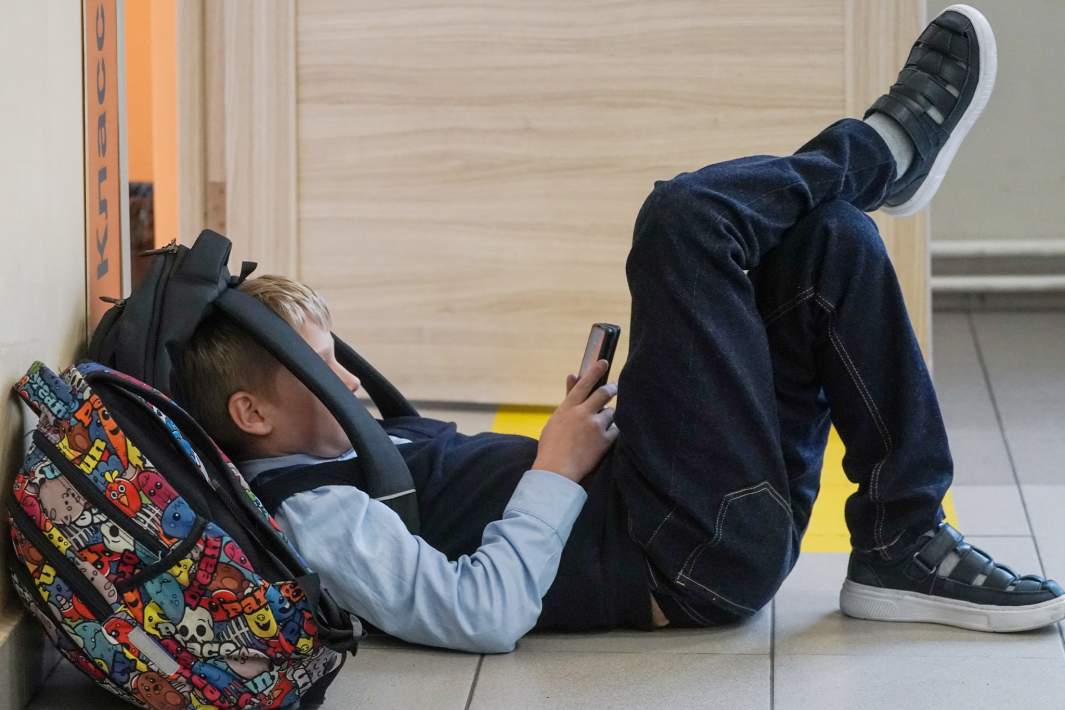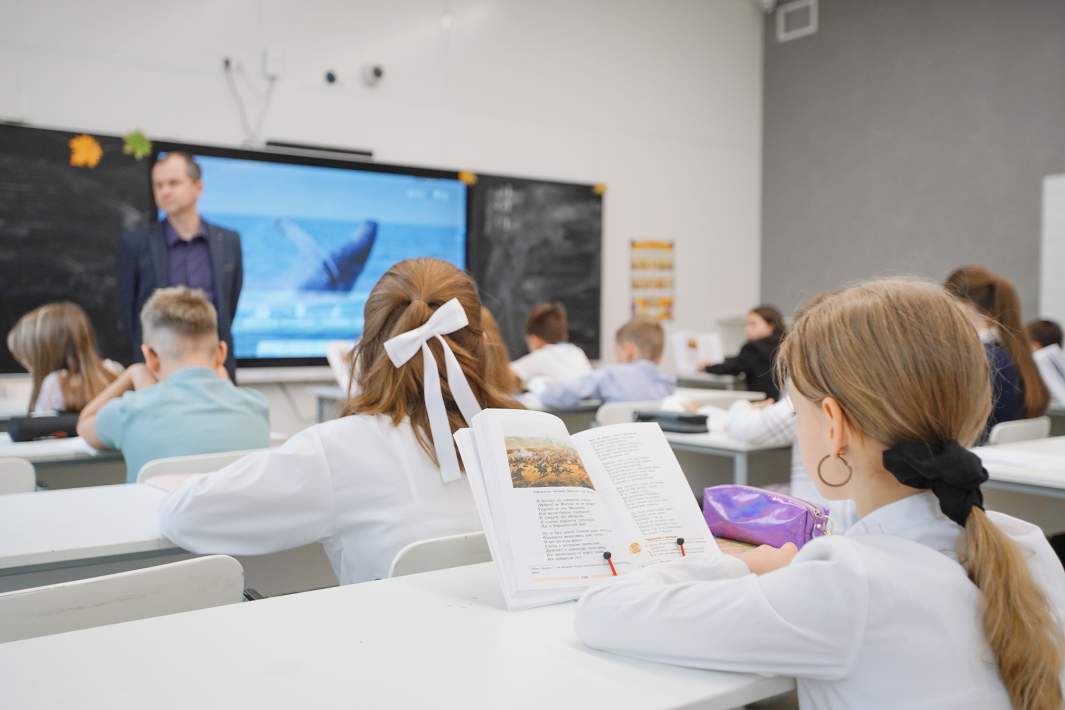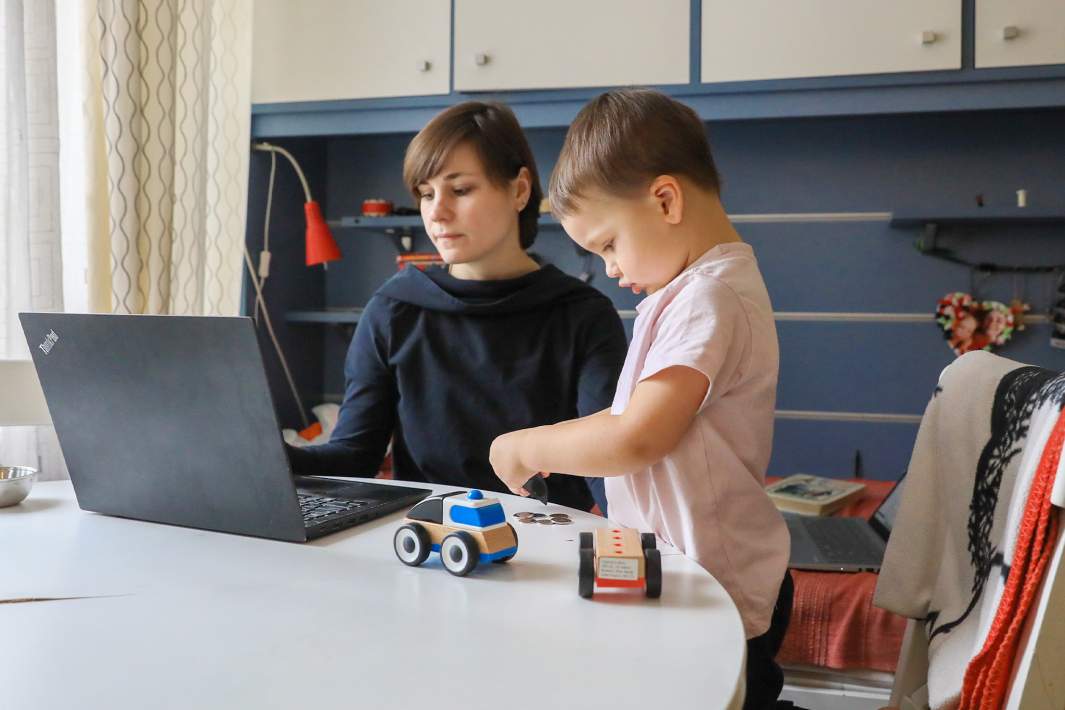Tell me, digital: why smart speakers won't replace communication with mom
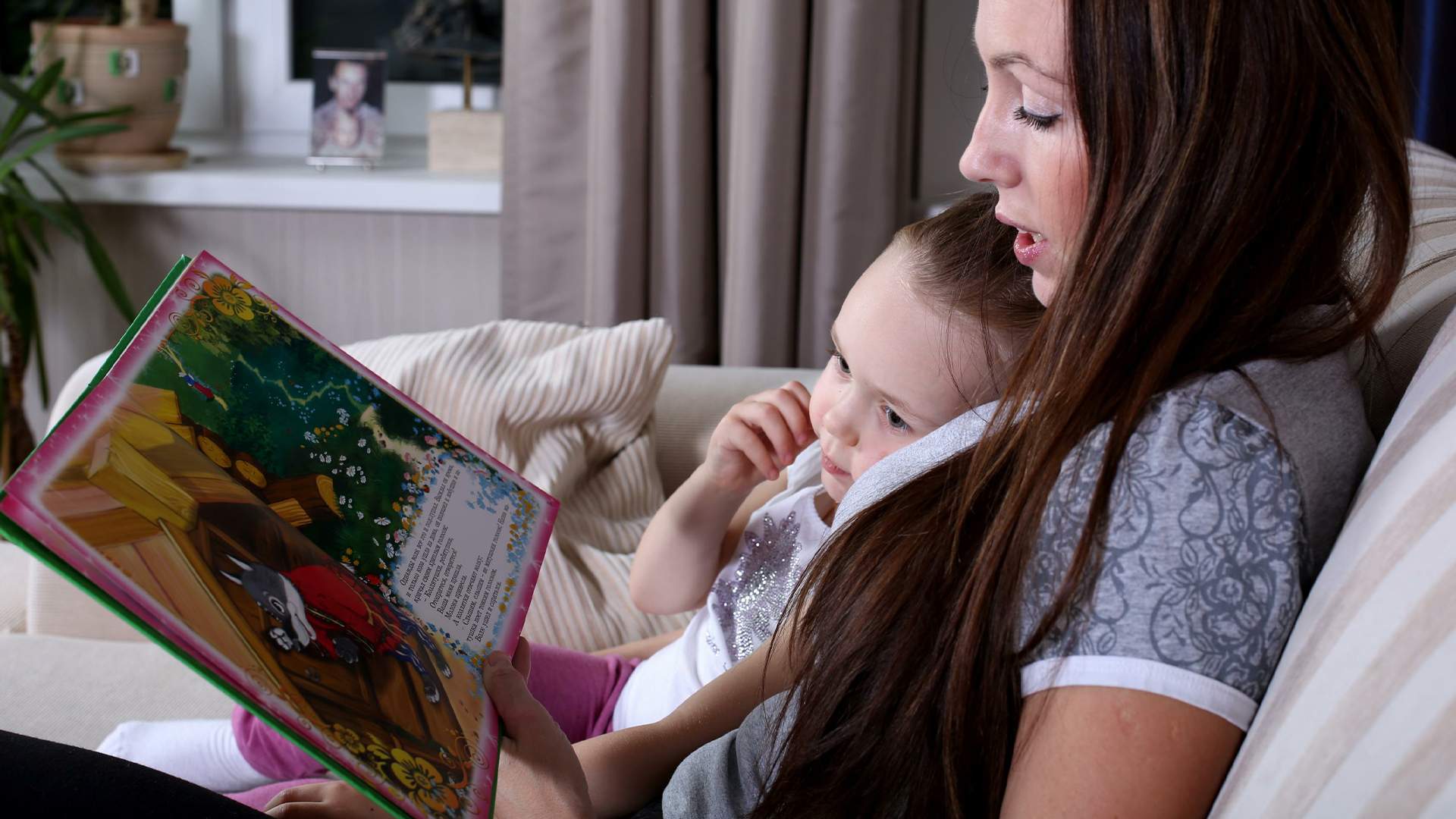
Teachers are sounding the alarm — a generation of parents has grown up who ignore such an important moment of upbringing and learning as reading together with children. Zoomers transfer even traditional bedtime stories to smart speakers. Whether artificial intelligence can replace live communication, what is the importance of paper books and who will become the intellectual elite in the future — in the Izvestia material.
What is a smart entity?
Culture exists as long as it is broadcast, that is, it is transmitted from person to person, says Katerina Tikhomirova, PhD, Professor, leading expert at the Laboratory of Digital Technologies in the Humanities at the National Research Nuclear University MEPhI. Over time, the ways of transmitting information change, and this is inevitable.
— We are witnessing how the role of the translator is being removed from the human subject and transferred to the smart space — to the technological subject. On the one hand, the preservation of cultural values continues through visualization (cartoons, videos, etc.). But on the other hand, there are already obvious problems with understanding perceived information," Tikhomirova comments.
According to the professor, it's not that information is not transmitted through book formats. The claims of scientists are not addressed to the quality of perception of the new format, but to the processing of this information by the person who perceives it.
— In the Stone Age, icons were written, then symbols were written on tablets and parchments. Then they learned how to print, record on tapes and records... The fact itself is important: to continue to preserve, transmit and comprehend, and most importantly, to create new things," says Professor Tikhomirova.
Without reflection, there will be no innovations, not only technical, but also any other, the professor emphasizes. Culture develops not only through conservation, but also through innovation. And they are possible only with the help of perceived reflection, a form of human mental activity aimed at understanding one's actions, as well as cultural values and their foundations.
Katerina Tikhomirova emphasizes that when it comes to children, it is important how adults help them understand what the author wanted to say (and the blogger in modern conditions). To what extent is the child prepared for the perception of this information and is he able to comprehend and analyze it? Parents and other significant adults cannot be dispensed with, and their participation in the "child— information source" relationship is essential.
— In ancient times, there were also cultural translators, that is, knowledge, norms and values. But even then, not all people understood and assimilated the meanings of what was said or written. As a set of data, the book, like the "video clips", also does not give anything. When learning information, parents, grandmothers, and teachers play a great role — that is, people who are nearby. Their task is to point out the links in events, discuss the characters and their actions," continues Katerina Tikhomirova.
It is important not only to broadcast, but also to retransmit, that is, to reproduce the meaning by commenting on the information, the professor summarizes.
When to teach a child to read
There is widespread discussion on the Internet about The Times' publication that parents aged 28 and younger refuse to read bedtime stories to their children. Foreign researchers attribute this to the fact that young moms and dads belong to the first generation of social networks. Teacher, psychologist, playwright, member of the board of the Russian Children's Fund Tatiana Shishova notes that the problem is not even that parents do not teach children to read. In our country, there is a slightly different trend in this regard.
— On the contrary, today children are increasingly being taught to read early. And they often do this through special courses, gymnasiums, and school preparation studios. But the paradox is that, despite fluent reading, the child's reading comprehension is often lacking. He gets to the end of the sentence, but he doesn't remember what the text was about," comments Tatiana Shishova.
The teacher considers this a consequence of both the premature start of learning — without a well—formed internal motivation - and unsuccessful methods. It's like a child reading in a foreign language — mechanically reproducing the text without thinking about what he has read.
— Motivation to read is formed primarily through the example of parents and emotional interaction. If adults read — and read books, rather than looking into the "box" of a smartphone, then the child has a natural desire to imitate them. Reading together is not just a useful habit, but an essential element in the development of emotional intelligence and child—parent relations," Shishova continues.
At such moments, a lively dialogue, discussion, and shared experience arise, which means that the "warm mind" that Dostoevsky wrote about develops, the teacher emphasizes.
Speech therapist, psychologist, teacher of Russian language and literature, author of the book "I speak, Read and write correctly" Inna Bogoroditskaya believes that the problem of the lack of family reading is not just a cultural shift, but a dangerous symptom of the gap between a child and civilization.
— A book is not only a learning tool. This is how a child enters the world of culture, spirituality, and ethics. When there is no reading, an emotionally poor, cognitively impaired generation is formed, which often does not understand either fairy tales, proverbs, or metaphors. And this is not an exaggeration: not all children know who Kolobok or Morozko are," Bogoroditskaya complains.
From the point of view of a speech therapist, the fundamental points of family reading are the formation of speech, logic, thinking, emotional intelligence, and attachment. "A book read aloud is about contact, trust, and dialogue. These are the first moral lessons and the first dictionary of values," Bogoroditskaya notes.
The impact of smartphones on children
According to Shishova, if a child spends all his free time on a smartphone, then he is not motivated to read at all.
— Research shows that with constant interaction with digital devices, children begin to lose interest in people. This is an alarming trend. We are faced with the fact that gadgets are becoming a substitute for live communication and the child eventually becomes emotionally distant from the family. In my practice, I see how this leads to aggression, memory loss, impaired attention, and in some children, even severe addiction," warns Tatiana Shishova.
According to the teacher, a paper book affects the child's psyche much more deeply than an electronic one.
— This is confirmed by the observations of psychologists: even adults are worse at assimilating text on the screen, get tired faster, and remember less. But children have yet to develop, and here the paper book remains the most important tool," explains Shishova.
Inna Bogoroditskaya also emphasizes that reading from paper is fundamentally different from reading text from a screen.
— A paper book forms imaginative thinking, launches an internal "cinema" of imagination, trains memory and attention. And if the so—called speech matrix is not formed (that is, an internal dictionary based on classical literature), then the child's speech becomes cliched, poor and fragmented, the expert warns.
Tatiana Shishova urges parents not only to teach children to read, but to read with them. This should be done regularly, with a soul, with discussions and personal interest. It is precisely such moments that create the very love of reading that cannot be instilled through technology, the expert believes.
— As the literary critic and cultural critic Yuri Lotman used to say, a book allows a person to live many lives. No gadget will provide such a volume of experience and feelings. And if parents understand this and start reading with their children, we will have a completely different country," concludes Inna Bogoroditskaya.
Mom or smart speaker
A generation of children is already growing up who are being told bedtime stories by smart speakers. These devices can, in a sense, support a conversation and answer questions. Artificial intelligence is ideal as an anthropomorphic (similar in structure to humans) cultural translator, the philosophy professor believes. But it also has its drawbacks. In particular, AI only imitates feelings, which a person cannot do without.
— Emotional and sensual is an important human trait. AI can't give that away. Even a stranger is not always able to give the right emotions to a small child. Sometimes only parents are capable of this," comments Katerina Tikhomirova.
According to Inna Bogoroditskaya, an electronic medium, even with excellent voice acting, will not replace live communication.
— A parent at the moment of reading is both an interpreter, a commentator, and a co—author of the child's inner world. And emotional interaction, questions and explanations are what understanding and development are based on. How can you grow a personality without talking to it? — the teacher of Russian language and literature argues.
According to Bogoroditskaya, systematic reading with parents can reduce the risk of developing disorders such as dyslexia and dysgraphia.
— Today, I encounter these problems more and more often when working with children who already in elementary school have difficulty understanding and retelling simple texts. Their speech is poor, their coherence is broken, and there is no interest in reading at all. And this is already an alarming marker," the teacher continues.
Another negative point: AI only translates the cultural code that was laid down by the developers, Tikhomirova emphasizes. This limits the perception of information. And not only.
— For example, American, Korean, and Chinese specialists. AI "equalization" technology makes it possible to balance the responses of AI bots, depersonalize them in terms of the uniqueness of cultures. That is, it helps to give a general, universal answer that will suit everyone," the professor continues.
According to Katerina Tikhomirova, cultural identity is being erased because of this averaging. Many people do not understand how neurochats differ for people from different countries.
— The fact that you are Russian, French or German, the younger generations may forget when communicating with universal speakers. This problem can be solved by creating sovereign AI technologies, as well as teaching young people to understand the context," the expert clarifies.
The professor highlights another problem — limited access to high-quality content (books, news, music).
— Such content has become difficult to find (not everyone knows how and what to look for) and expensive (if found). This is a problem that can lead to social contradictions — an intellectual gap, not a financial one. Those who learn how to find the information they need and who can pay and master it will become the intellectual elite. But there will be very few of them in the era of parents who do not read to children," believes Katerina Tikhomirova.
Inna Bogoroditskaya also believes that it is important what kind of literature children read. Today, the Russian market is full of low-grade translated products with primitive dialogues, the expert complains. There can be no full-fledged development without a basic set of classics.
— I'm not against technology, I'm for balance. But if we don't saturate childhood with books, conversations, classical music, and vivid images, we risk raising a generation incapable of empathy, reflection, and critical thinking," concludes Inna Bogoroditskaya.
Переведено сервисом «Яндекс Переводчик»


